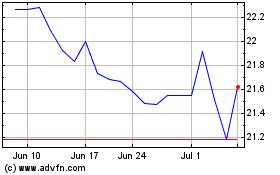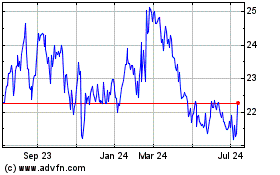World-Class IT Orgs Deliver Improved Agility
and Performance While Supporting Digital Transformation to Drive
Competitive Advantage
World-class IT organizations are dramatically more effective
than their peers at enabling the digital transformation that is at
the heart of most business strategies today, according to new
research from The Hackett Group, Inc. (NASDAQ:HCKT). This ability
plays a key role in how world-class IT organizations enable greater
efficiency, agility and improved competitive advantage across the
enterprise, The Hackett Group found. At the same time, world-class
IT organizations also spend significantly less on IT operations
than typical companies.
The Hackett Group’s research details four imperatives for
companies seeking to achieve world-class IT performance in the
digital era: reallocate resources from transactional focus to
value-adding; embrace digital transformation; lead the organization
on the information and analytics transformation journey; and adopt
customer-centric service design and delivery principles.
The research, “Four Imperatives for Creating IT Agility in a
Digital Age,” is available on a complimentary basis with
registration at this link: http://bit.ly/2bv8WdG. World-class IT
organizations are those that achieve top-quartile performance in
both efficiency and effectiveness across an array of weighted
metrics in The Hackett Group’s comprehensive benchmark.
World-class IT organizations spend 21 percent less per end user
than typical companies, and rely on 8 percent fewer staff,
according to The Hackett Group’s research, driving annual savings
of as much as $41 million (for a company with $10 billion in
revenue). They also allocate resources by project life cycle phase
very differently than their peers, diverting resources from basic
“run the business” activities in order to fund delivery of new,
often client-facing systems of strategic importance to the
enterprise. World-class IT organizations dedicate a significantly
lower portion of their process costs, comprised of labor and
outsourcing, to “run” activities (53 percent of budget versus 60
percent for typical companies) and a larger percentage of process
costs are committed to “build” efforts (43 percent versus 32
percent). Staffing mix is similarly oriented, with a greater
percentage of staff dedicated to “build” and fewer to “run”
activities.
The Hackett Group’s research also found that world-class IT
organizations are more effective in how they operate and deliver
services, realizing ROI objectives more than twice as often as
typical companies (61 percent of the time versus 27 percent). One
key to this is world-class IT organizations’ ability to enable key
areas of the business to more effectively leverage technology
through higher levels of automation and self-service. This is
managed and controlled by strong governance to ensure that projects
that yield strong ROIs are prioritized and resources are aligned
accordingly.
“Leaders at world-class IT organizations understand that while
running core information systems and providing infrastructure
efficiently remain critical capabilities, digital transformation is
increasingly becoming a ‘must have’ to stay relevant in the
business,” said The Hackett Group Practice Leader, IT Executive
Advisory Program Scott Holland. “If they are not prepared to
support this effort, companies won’t wait. Rather than allow the
internal IT organization to be a bottleneck to digital
transformation execution, the business will look for outside
partnerships, acquire technologies directly and develop technology
management capabilities themselves.”
The Hackett Group’s research detailed four imperatives of
world-class IT performance in the digital age, as follows:
Reallocate Resources from Transactional Focus to Value
Adding – IT budgets are growing only modestly, so IT
organizations have to self-fund the development of new competencies
to support digital business transformation. To shift resources from
“run” to “build” activities, IT organizations must relentlessly
focus on efficiency improvements in the delivery of commodity
services. A key step is the adoption of a formal service delivery
model, and the de facto standard for IT operations is the ITIL
framework. IT organizations should consider consolidating
infrastructure and service desk components to shared services or
global business services. IT should also eliminate non-value added
complexity in the architecture and application portfolio.
World-class IT organizations have dramatically lower complexity,
relying on less than half the business applications and database
platforms of typical companies, the research found.
Embrace Digital Transformation – “IT organizations are at
a crossroads – with one foot in the new digital world of cloud, big
data analytics, social media, mobile, and the Internet of Things,
and another foot in the past, constrained by legacy technologies
and skill sets,” explained The Hackett Group IT Transformation
Practice Leader and Principal Mark Peacock. “Many IT leaders are
overwhelmed by this challenge, and they are likely to find
themselves marginalized. But those that are hoping to achieve
world-class performance are energized by the opportunity to elevate
the role of technology to a higher level, as senior management
embrace digital as a cornerstone of the business strategy.”
To further the digital transformation imperative, The Hackett
Group’s research recommends that IT organizations continually
monitor and explore technology innovations, then use this as a
jumping-off point for conceptualizing value-creation opportunities.
They should also shorten solution development times, moving beyond
traditional waterfall-based methods and adopting rapid application
development approaches.
Lead the Organization on the Information and Analytics
Transformation Journey – IT must assume a leading role in
guiding the organization on the information and analytics
transformation journey, The Hackett Group’s research found. To do
this, IT must take ownership of the enterprise information
architecture, which has changed dramatically. In addition, IT must
support ongoing business-led, data-related initiatives by providing
services such as master data management, data integration and
database administration. To facilitate all this requires new IT
skills, which are expected to be scarce, and the most adaptable,
fastest learning IT organizations with the ability to attract the
best talent will have a competitive advantage.
Adopt Customer-Centric Service Design and Delivery
Principles – IT should focus on making it as easy as possible
for internal associates, business partners, and external customers
to interact with information systems. Self-service is a prime
example of the potential for customer-centric design. World-class
IT organizations see levels of self-service enablement up to six
times greater than typical companies in key areas such as supplier
inquiry, distributor collaboration, and customer bill presentment.
Service to internal customers is a key area where many IT
organizations fall short. To improve IT organizations can establish
councils and focus groups to provide “voice of the customer”
recommendations which can guide decisions regarding design of
processes and supporting systems.
The Hackett Group’s World-Class IT Performance Advantage
Research is based on an analysis of results from recent benchmarks,
performance studies, and advisory and transformation engagements at
hundreds of large global companies.
About The Hackett Group
The Hackett Group (NASDAQ: HCKT) is an intellectual
property-based strategic consultancy and leading
enterprise benchmarking and best practices implementation
firm to global companies. Services include business
transformation, enterprise performance
management, working capital management, and global
business services. The Hackett Group also provides dedicated
expertise in business strategy, operations, finance, human capital
management, strategic sourcing, procurement, and information
technology, including its award-winning Oracle EPM and SAP
practices.
The Hackett Group has completed more than 11,000 benchmarking
studies with major corporations and government agencies, including
93% of the Dow Jones Industrials, 86% of the Fortune 100, 87% of
the DAX 30 and 52% of the FTSE 100. These studies drive its Best
Practice Intelligence Center™ which includes the firm's
benchmarking metrics, best practices repository, and best practice
configuration guides and process flows, which enable The Hackett
Group’s clients and partners to achieve world-class
performance.
More information on The Hackett Group is available at:
www.thehackettgroup.com, info@thehackettgroup.com, or by calling
(770) 225-3600.
View source
version on businesswire.com: http://www.businesswire.com/news/home/20161101005345/en/
The Hackett Group, Inc.Gary Baker, 917-796-2391Global
Communications Directorgbaker@thehackettgroup.com
Hackett (NASDAQ:HCKT)
Historical Stock Chart
From Mar 2024 to Apr 2024

Hackett (NASDAQ:HCKT)
Historical Stock Chart
From Apr 2023 to Apr 2024
